![Why Is My Basset Hound Not Eating? [13 Reasons & Solutions] 1 Why Is My Basset Hound Not Eating?](https://adoptanim.com/wp-content/uploads/2023/02/dog-7807976_1920-min-1600x1200.jpg)
Contents
Why Is My Basset Hound Not Eating? – Introduction
We’ve all been there. You’re at the supermarket, and your basset won’t eat anything. Maybe he’s not hungry, or you think he looks too skinny. But the thing is – it might be about something other than what your dog is eating! So let’s take a look at some possible reasons why dogs don’t want to eat:
![Why Is My Basset Hound Not Eating? [13 Reasons & Solutions] 2 Why Is My Basset Hound Not Eating?](https://adoptanim.com/wp-content/uploads/2023/02/carrie-borden-EIfGgiE6OKU-unsplash-min-1024x681.jpg)
Top 5 reasons why my dog is not eating anything: https://m.youtube.com/watch?v=CP7BGQ3Yuys
They have a sensitive stomach
A sensitive stomach is a common problem in dogs. It can be caused by various reasons, such as food intolerance or illness, but it usually occurs because your dog has an abnormal pH level in their system. Your dog’s body will try to compensate for this by consuming more water than usual, which causes them to vomit up what they have already eaten.
If you notice that your basset hound isn’t eating and they don’t seem interested in any food offered, there might be something wrong with his digestive system!
They have a low appetite.
Your dog may be a picky eater. A basset hound’s diet comprises high-quality ingredients, so they must get the proper nutrients in their food. If you notice your basset has a sensitive stomach or digestive issues (like vomiting), this could be why they aren’t eating as much as usual.
If you think that your dog’s appetite is low, but there are no apparent signs of illness, take them to the vet for an evaluation first!
The food they are eating is not suitable for them
Basset hounds are very active dogs, so they must have enough nutrition. Feeding your basset poor-quality food will provide only some of the nutrients he needs to stay healthy and strong. Poor-quality foods may also contain too much fat or protein, which could cause digestive issues if the dog lacks enough of either. Adding simple supplements such as vitamins and minerals can help compensate for any deficiencies in these areas when feeding your basset on his schedule!
Your basset may not be eating because he’s in pain, like when he eats. Several factors can cause this:
- An infected tooth that needs to be pulled out (or worse)
- Hormonal changes as your baby reach sexual maturity, which can make them more sensitive to pain and discomfort than usual
It could be because of boredom, stress, age, injury, or illness.
Boredom can be a sign of boredom. If your dog is used to spending all day playing with his toys and running around with you, but now you’ve moved the family into an apartment where he has no room to run around, he may get stressed out and start chewing on furniture or other things to relieve that stress.
Stress can also lead to illness (and sometimes death). If your dog has been ill recently, it’s possible that his immune system isn’t functioning correctly anymore—which means that if he eats something contaminated with bacteria (like raw meat), those bacteria could make him sick!
In some cases, it could be allergies to their food, a parasite or a foreign body in their stomach causing problems.
Allergies can cause vomiting and diarrhea.
Fleas can cause an allergic reaction, which could be the cause of your dog’s illness.
Food allergies may also be at play here. If you’re noticing that your dog has been having stomach issues lately, it might be time to switch up its diet! They might have developed a food allergy from eating something new in the house or yard (like grass), or maybe they’re reacting to something that wasn’t even part of their regular diet before now!
Parasites like tapeworms are prevalent among dogs who aren’t getting enough exercise and ideal nutrition. And because these parasites require no hosts like humans (meaning they don’t need food), they can live inside any warm-blooded animal without being detected until symptoms appear later when it becomes too late for treatment options available today.”
They may have an allergy to the water they are drinking, too much sun exposure, parasites in their system, ulcers, kidney disease, cancer and other medical issues that can cause digestive disorders.
If your dog suffers from any of these symptoms, it’s a good idea to call your vet for an appointment. They can help you determine what’s happening and how best to treat it.
Allergies: An allergy can cause vomiting, diarrhea, stomach upset, and loss of appetite. Dehydration can also result from an allergic reaction (it causes the body to lose more fluid than it takes in). If this often happens enough that your dog has an upset stomach due to lack of water consumption, it could also be more serious!
![Why Is My Basset Hound Not Eating? [13 Reasons & Solutions] 3 Why Is My Basset Hound Not Eating?](https://adoptanim.com/wp-content/uploads/2023/02/basset-hound-3858177_1920-min-1024x683.jpg)
Parasites: Parasites are tiny organisms that live inside another animal’s body without causing any harm; however, they can still cause problems when they’re found in larger animals like dogs or cats because they might not notice them until later on down the road when their immune system becomes compromised due to other conditions like cancer treatment side effects from medications being taken orally instead intravenously through IV lines placed directly into veins underneath skin surfaces where no needle prick marks need occur at all since both methods require injections administered via those types
Your basset may be suffering from an intestinal blockage – this happens when something gets stuck in the digestive tract and prevents food from moving along smoothly, so you may see your dog frequently vomit over time if there is a blockage somewhere along their GI tract, such as an obstruction in food going into their stomach whereas they may eat normally, but they aren’t digesting correctly.
Because of this obstruction so it could result in vomiting or diarrhea which leads us to our following reason why dogs don’t eat -If your dog is vomiting or showing any other signs of illness, it is essential to take them to the vet immediately.
Your Basset Hound is probably sick.
If your Basset Hound is not eating, it’s probably because they have a health problem. This can be anything from the common cold to something serious like cancer or kidney failure. You should always consult a vet if you suspect your dog has any illness—even if it seems minor at first glance—as early diagnosis is critical for successful treatment.
If your basset does have a fever and does not seem to be able to find enough energy for his daily activities (e.g., walking around, playing fetch), then several things could be causing this behavior:
• Stomach upset from vomiting and diarrhea
• Anemia due to an inability to absorb enough nutrients in his diet
You need to give your Basset Hound more exercise.
One of the most common reasons for a Basset Hound to not eat is because they aren’t getting enough exercise. This can be due to various factors, including age and health issues. If you have an older dog or one with specific disabilities, he may not be able to get outside as often or engage in activities that would keep him active.
Another reason why your Basset Hound might stop eating is if he doesn’t get enough exercise while indoors. This can also apply if your pup has just moved into his new home and is still familiar with his surroundings; however, you must provide him with plenty of opportunities for exercise each day so he can stay energized and energized at home!
Your Basset Hound may have a hairball.
If your Basset Hound is vomiting, has diarrhea or has a loss of appetite, a hairball may have formed in his stomach. A hairball is a ball of hair stuck in the stomach and can cause vomiting, diarrhea and an inability to eat. Hairballs are often caused by over-grooming (brushing) and overeating when you have cats or other animals around your home who shed their coat all day!
Hairballs are not dangerous for most dogs; however, they can lead to other complications, such as pancreatitis and inflammation of the pancreas (the organ responsible for digestion). This condition could lead to even more severe issues like liver failure or death if left untreated.
Several treatments are available, including laxatives, stool softeners and digestive enzymes that break down grease found within any food ingested by your pet’s body. Still, these should only be used under consultation with their veterinarian since additional underlying causes may be present, requiring further investigation before treatment begins.
You are unsure of the best food to feed your Basset Hound
If you’re feeding the right food, your Basset Hound should be eating it. You should check the label to ensure it is made for dogs and contains no fillers or other ingredients that may harm them. Some manufacturers also add vitamins or minerals to their products, so check the nutritional content of any dog food you buy.
You are feeding too much table food and not enough dog food, making your pet hyperactive or lethargic.
If you’re feeding your dog table food, monitoring the number of calories they’re consuming is essential. Too much of this diet can upset their stomach and make them hyperactive or lethargic. They may also become overweight, which can lead to a host of health problems down the road.
Adding table scraps into their diet could also cause bad breath and teeth problems—which most people don’t want in their dogs!
Your Basset Hound’s diet may contain too many treats or too many snacks, causing digestive upset or diarrhea (then it could be a hairball)
It would help to check your dog’s food and ensure it was free from any ingredients that might cause digestive upset. If you have been giving your pet treats as a reward for good behavior in training sessions, or even just because you love them so much that you want to give them something special now and then, this must stop! Treats can cause digestive problems when eaten by dogs prone to these conditions (i.e., hairballs).
Check the water bowl – do they drink enough water? Do they need more?
If your dog is not drinking enough water, it may suffer from kidney stones or urinary tract infections. If you notice that your dog has been having more accidents, it could also be due to dehydration. Basset Hounds are prone to urinary tract infections because they have tiny bladders and cannot hold much liquid at once. A lack of hydration can also cause dehydration, so make sure that your basset gets plenty of water every day—it’s recommended to give them about 1/4 cup (60mL) per pound of body weight each day!
![Why Is My Basset Hound Not Eating? [13 Reasons & Solutions] 4 Why Is My Basset Hound Not Eating?](https://adoptanim.com/wp-content/uploads/2023/02/basset-hound-4035737_1920-1-min-768x1024.jpg)
Conclusion
If your Basset Hound isn’t eating well and you have tried everything in this guide, it may be time to take them to the vet. Your veterinarian will be able to help solve the problem and make sure your dog is healthy!
More Links :
Can Dogs Drink Homemade Apple Juice? Get the Amazing Facts in 2023! https://adoptanim.com/can-dogs-drink-homemade-apple-juice/
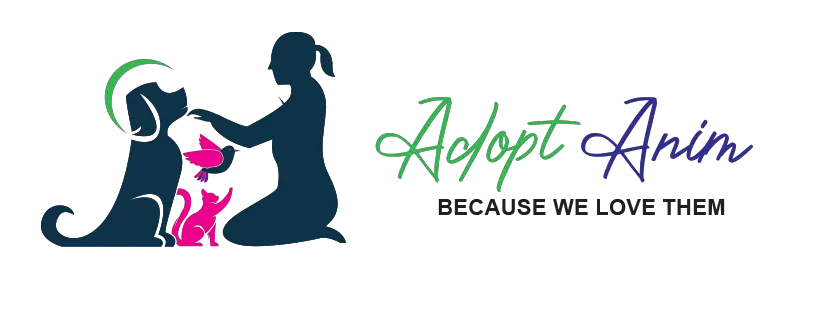
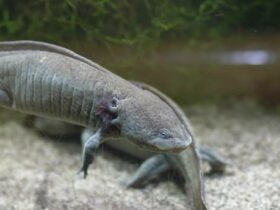
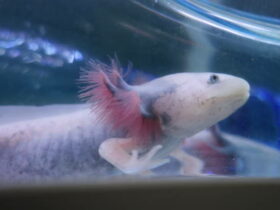
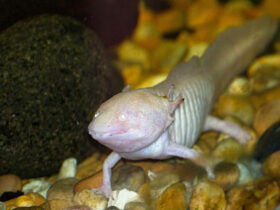
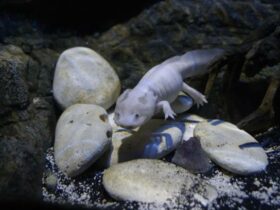



Leave a Reply